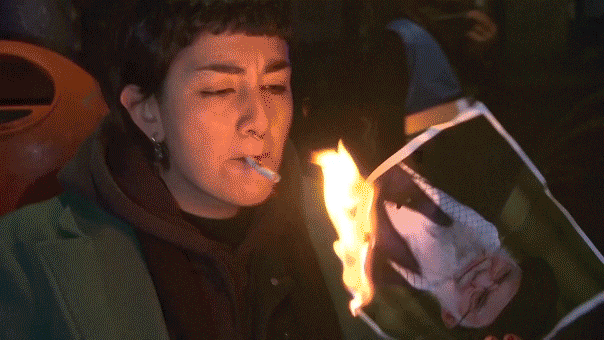TOKYO – Ichiro Ozawa, the veteran Japanese lawmaker who engineered the ruling party's rise to power, was acquitted Thursday in a political funding scandal that has damaged his chances of becoming prime minister.
The scandal also cost Ozawa his membership in the ruling Democratic Party of Japan, though he has continued to wield great influence as a political power broker. The acquittal means his membership could be reinstated, allowing him to exert even more sway.
The 69-year-old was charged last year with violating political funding laws by allegedly overseeing false accounting by his former aides in a murky 2004 land deal. Prosecutors claimed the three aides, who were convicted last year and have since appealed, acted under Ozawa's orders, but the Tokyo District Court said it found no evidence of that.
Though Ozawa played a key role in the party's historic rise to power in 2009, defeating the long-ruling conservatives, he is unpopular with voters and has a negative image as an old-style, wheeling-and-dealing "shadow shogun." He still has a loyal core of supporters, many of them young politicians whose careers he helped launch.
The prosecution had demanded a three-year prison term for the defendant, alleging that Ozawa was fully aware of false bookkeeping by the three aides to cover up questionable funds and their transaction used in the land deal, and that he authorized the false entry of the transaction in an annual political funds report to the government.
Ozawa repeatedly told the court that he had no knowledge of his aides' actions. He said his indictment was based on an "unjust and illegal" investigation and demanded that the trial be scrapped.
Ozawa released a statement after the ruling, calling it "sensible and fair."
Chief Judge Fumio Daizen said that circumstantial evidence pointed to Ozawa's collusion because it would have been impossible for his aides to carry out a costly land deal without approval by their boss.
But he said there was no evidence of "deliberate communication" between Ozawa and his aides to prove they colluded. "There is not sufficient evidence of criminal action. Hence we rule that the defendant is not guilty," the judge said.
Shunzo Omuro, who headed the prosecution team, said that the ruling was close to a conviction, and that his team was considering appealing the decision.
The three aides, who were tried as a group, were given suspended prison terms of up to three years for failing to register a 400 million yen ($5 million) loan from Ozawa to his funding body in the Tokyo land deal and for accepting 100 million yen ($1.3 million) in illegal donations from a construction company.
While ministers in Prime Minister Yoshihiko Noda's Cabinet kept mum about the ruling, senior lawmakers close to Ozawa said they planned to request reinstatement of his party membership in early May.
Noda has indicated that his party would consider reinstating Ozawa's party membership if he was acquitted.
Even as the scandal brewed, Ozawa wielded a great deal of influence within the ruling party. He lost a party leadership vote to then-Prime Minister Naoto Kan in 2010, but several months later played a key role in pressuring Kan to resign.
Ozawa stood trial after a judicial panel comprising ordinary citizens sought his indictment, despite earlier decisions by prosecutors to drop the case due to insufficient evidence. He alleged that his indictment was an "abuse of state power intended to eliminate me socially and politically."
Ozawa's trial also caught attention as it revealed that prosecutors had fabricated one of the aides' remarks in interrogation documents. The court later excluded some prosecution documents from the case, leaving prosecutors to make the case without hard evidence showing Ozawa's role.








































